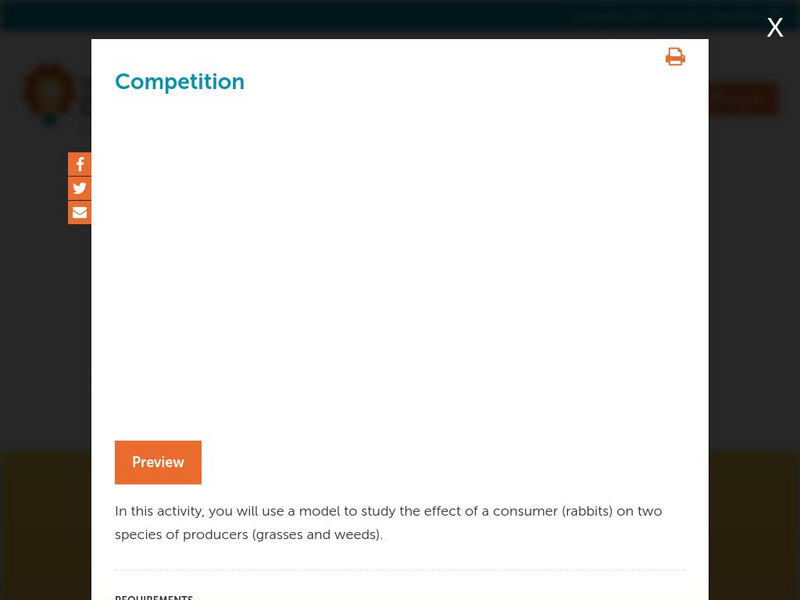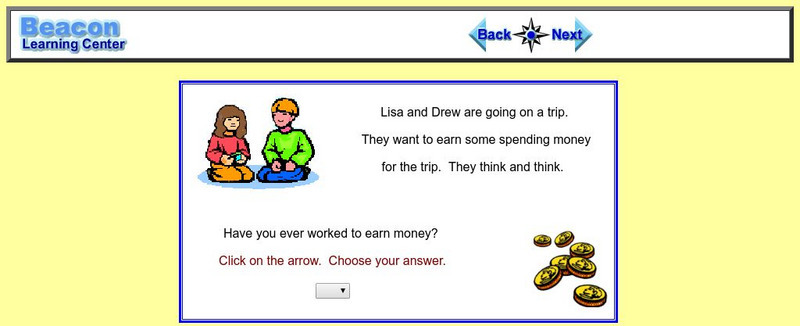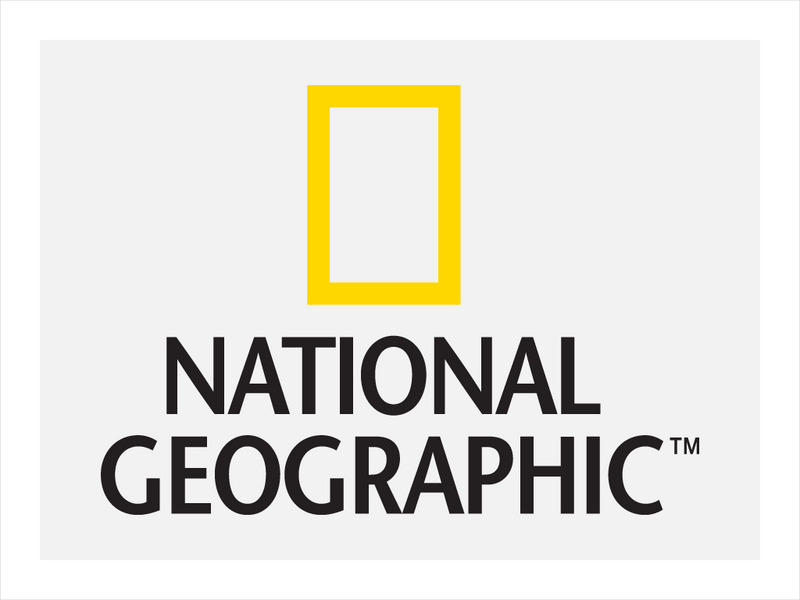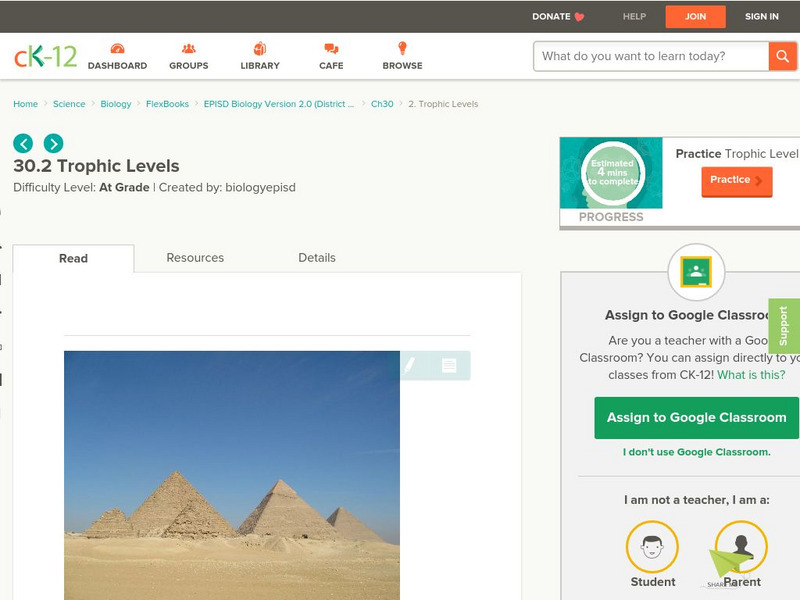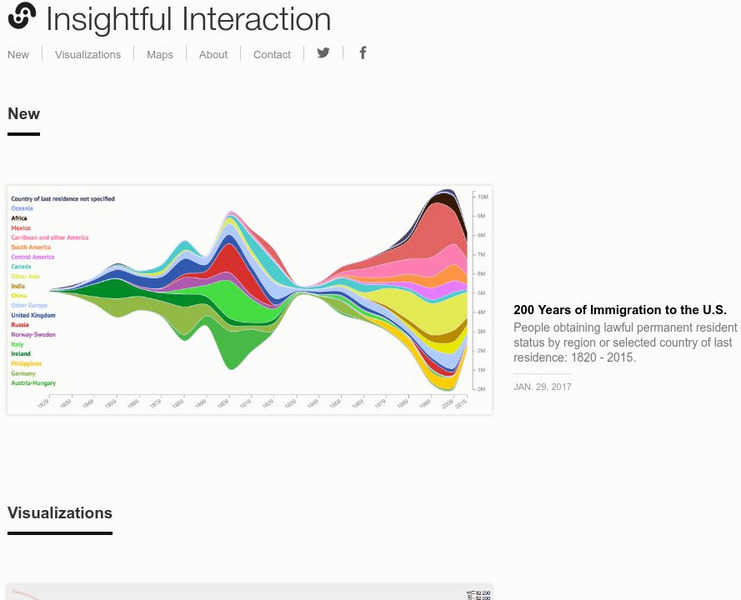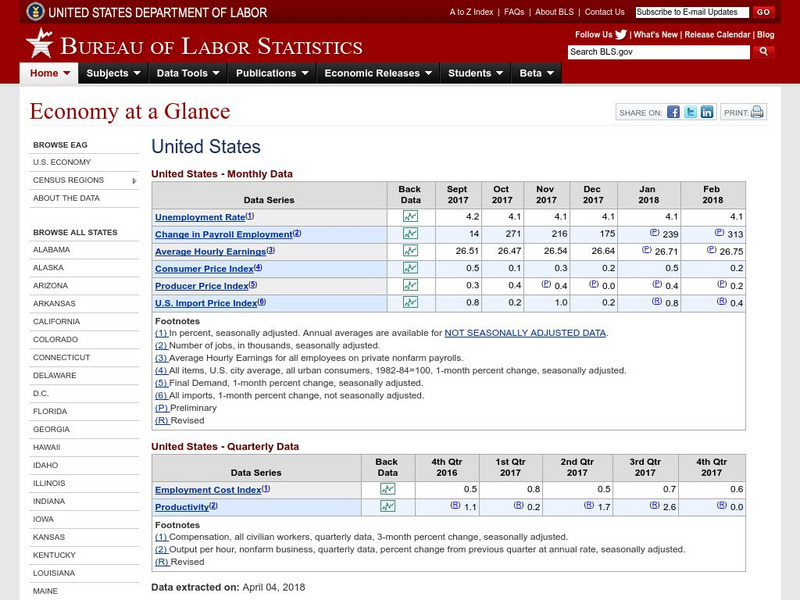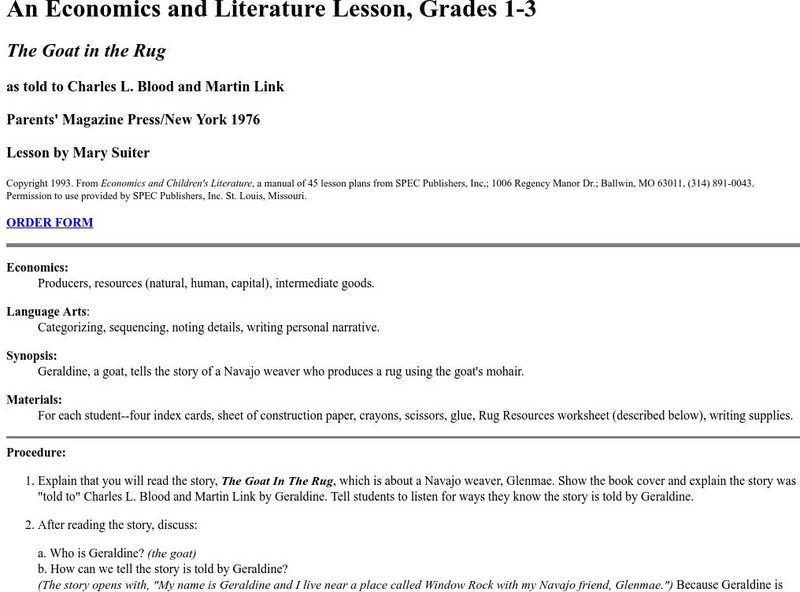Sophia Learning
Sophia: Producers and Consumers: Lesson 2
This lesson will review the difference between producers and consumers, and show how both play important roles in a food web. It is 2 of 4 in the series titled "Producers and Consumers."
Curated OER
National Park Service: Moon Crater Ecosystems Lesson Plan
This is a teacher's guide to a lesson on ecosystems. The objective is for the students to set up their own ecosystem and define the roles of producers, consumers and scavengers.
Khan Academy
Khan Academy: Lesson Overview: Consumer and Producer Surplus
This lesson introduced the basics of a branch of economics known as welfare economics, which is interested in how the allocation of resources affects well-being. The most important concepts used in welfare analysis are total surplus and...
Louisiana Department of Education
Louisiana Doe: Louisiana Believes: Social Studies: Grade 3: Producers and Consumers
Read and study the sources about the roles that different people have in the Louisiana economy. As you read the three sources, think about what would happen if some people gave up those roles.
Concord Consortium
Concord Consortium: Stem Resources: Competition
An interactive activity where students study how two species of producers are affected by a consumer. By completing several virtual experiments and collecting data, students will be able to summarize what plants can do to defend...
Council for Economic Education
Econ Ed Link: Hey, Mom! What's for Breakfast?
In this lesson students working in cooperative groups will: 1.Discuss food items they consume for breakfast. 2.Investigate elements of foreign culture, particularly food. 3.Use map skills to locate selected foreign nations. 4.Increase...
Council for Economic Education
Econ Ed Link: Clipping Coupons
Explore this website to find out how and why consumers make choices on what products to buy. Learn how producers entice consumers into buying their products. This is a very informative lesson plan.
Beacon Learning Center
Beacon Learning Center: Business Buddies
Help characters Lisa and Drew learn simple economic principles by choosing what goods they will need for their lemonade stand. Continue exploring economic concepts by determining the producers, services, and consumers associated with the...
National Geographic
National Geographic: Coral Reef Food Web
Explore the food web in a coral reef with these illustration. Identify the consumers, producers, and decomposers that are located within this ecosystem. Site includes illustration exploring the different food chains as well as questions...
CK-12 Foundation
Ck 12: Episd: Trophic Levels
[Free Registration/Login may be required to access all resource tools.] Understand what trophic levels are and identify producers and consumers in a food web.
Other
Insightful Interaction: Visualizations
A collection of interactive visualizations that were produced through analysis of economic, political, and market research data. Topics are diverse, e.g., military spending and trade, immigration, consumer spending, crime, unemployment,...
Annenberg Foundation
Annenberg Learner: The Habitable Planet: Ecology Lab
Create the parameters of your own ecosystem by choosing which producers and consumers live there. Visualize how the food web operates and species populations change. This simulator mimics the food web within a typical ecosystem and gives...
US Department of Labor
Bureau of Labor Statistics: u.s. Economy at a Glance
The seven major economic indicators for the U.S. economy are listed here in an easy to read chart. The seven indicators are unemployment rate, change in hourly employment, average hourly earnings, consumer price index, producer price...
Channel 4 Learning
Channel 4 Learning: Science Essentials: Habitats
Find answers to your questions about habitats, producers, consumers, and food chains. Glossary, image bank, suggested activities, and quiz included.
SMART Technologies
Smart: Ecosystem Food Chain and Food Web
Starts with living and non living and works through producers, consumers, food chains and food webs.
Other
Pde Sas: Relationships Among Organisms
In this instructional activity, students compare various types of relationships among organisms (i.e., biotic interactions). Students will: explain the roles of producers and consumers, and predators and prey in an ecosystem. Explain the...
iCivics
I Civics: The Market Economy
This lesson teaches the basics about the market economy, including the relationships between consumers and producers, supply and demand, and profit and incentive. Students learn six traits of a market economy, compare the market economy...
NOAA
Noaa: Estuaries 101 Curriculum: Biodiversity in an Estuary
This activity introduces students to the amazing biodiversity of an estuarine environment, focusing on the habitats in the Rookery Bay National EstuarineResearch Reserve, Florida. They begin by exploring the estuary using Google Maps....
SMART Technologies
Smart: Economic Review Lesson
This activity reviews goods, services, producers, and consumers. The lesson consist of sorting, fill in the blank, writing, and racing car review quiz.
University of Nebraska Omaha
An Economics and Literature Lesson: The Goat in the Rug
This is a lesson plan geared toward first through third grades, cross-curricular, dealing with economics and literature. "Learn about economics: producers, resources (natural, human, capital), intermediate goods; and Language Arts:...
TeachEngineering
Teach Engineering: Go With the Energy Flow
Students learn about energy and nutrient flow in various biosphere climates and environments. They learn about herbivores, carnivores, omnivores, food chains and food webs, seeing the interdependence between producers, consumers and...
Utah Education Network
Uen: Nhmu: Living Food Web
Fourth graders will be able to name some plants and animals that live in Utah's desert, forest or wetland ecosystems.
Council for Economic Education
Econ Ed Link: Bringing the Market to the Farm
This printable lesson discusses producers and consumers from an agricultural perspective. It focuses on choices that the consumer has with regard to purchasing agricultural goods (e.g. fruits and vegetables). As an example, it uses...
Utah Education Network
Uen: Everyone Works
Lesson that helps young scholars understand the economic concepts of goods and services. Students categorize economic activities as goods or services, and discuss the goods and services exchanged in If You Give a Mouse a Cookie by Laura...
Other popular searches
- Consumers and Producers
- Science Producers Consumers
- Producers and Consumers Poem
- Marine Producers Consumers
- Producers Consumers Writing
- Consumers Producers
- Consumers, Producers






